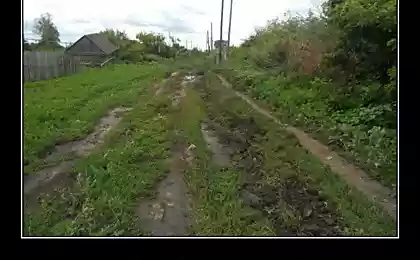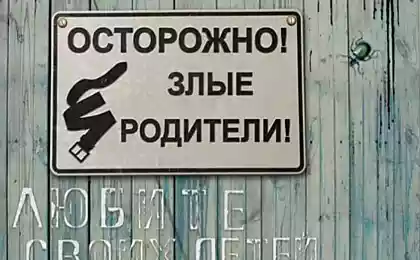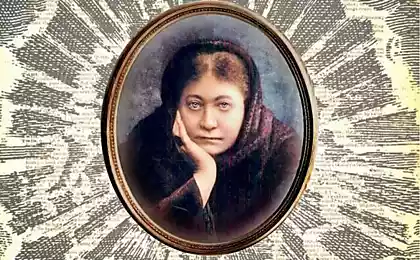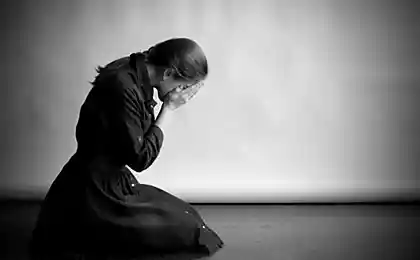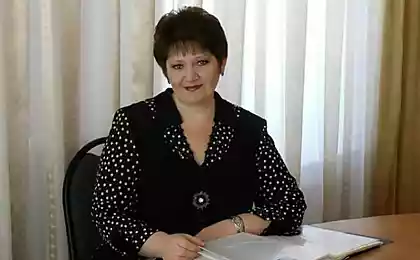530
Unheard children unhappy adults
Every family and every family has its own drama, or even tragedy. Large or small, overt or covert, hushed. But it's there. It can last a long time be passed on from generation to generation.
For example, once in the genus, all men died in the war, and women were "strong". Or property, all their possessions taken away, and the feeling of "inappropriateness" in this world the background is constantly pursued and passed down from generation to generation.
Now and grandson bought a second apartment, the son built a house, brother has designed the ownership of land. And the feeling that "all pick" or "this is still a little" somewhere there. It may be quite unconscious and is experienced only as subrepository discomfort or anxiety, from which it is difficult to sleep. Or that all the time accompanied by one and the same dream.

To get rid of worries and feelings
But we used to escape from feelings of feelings. The thoughts, decisions, actions, conversations. Once it was saved by our ancestors. Didn't have time to worry, didn't have time to use your sensual experience good. It was necessary to issue "on the mountain" something rational to calm yourself and to others.
And issued. And experiences — stuffed inside, like old clothes in the far corner of the closet or was thrown away as rubbish — in pantry.
And maybe now we have time to "unpack" the baggage of experiences. After all, he can't be eradicated, it is with a heavy methodicalness makes itself felt from the inside. But the mechanisms are not. And skill no. All the things we were taught was quite the opposite: to suppress feelings.
"Traumatic" upbringing
In many cases a person's psyche injure is not what we at first sight think. For example, we want to protect the child from any adult conflicts or difficult events — when someone dies. We think that's what hurts him the most.
But often the incredible damage we are doing to the children (or us parents inflicted) on ordinary days when nothing happens and everything seems to be "cool." When we are unable to hear the experiences of the child and reflect them.
In such conventional "everyday days" when we just deaf (and to yourself) to those who asks us this attention, we put a strong injury.
And if we do this, it means only one thing: with us, at the time, did the same.
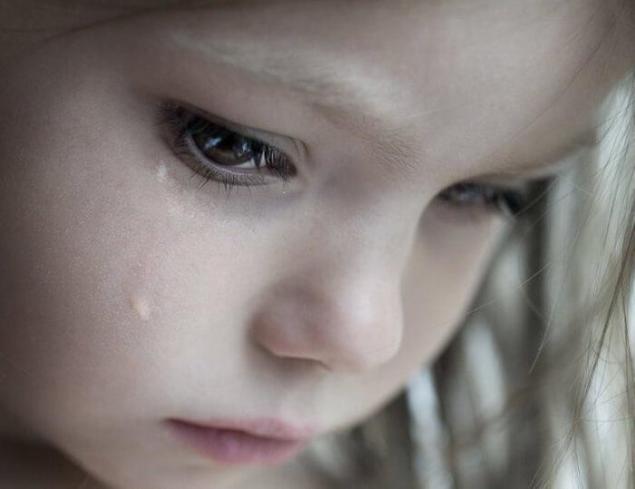
The most important thing for a person — his whole image of self.
What we feel inside, about yourself know and think we allow ourselves, as a treat, and is the common experience of "happiness" or "unhappiness" of life. Even not so important how much or how little money we have, we live in the family or yourself, what job we have, how many friends or connections. This is not so important. After all, if image I is not formed or only partially formed, we will suffer from this every day and every minute. And no external events will not be able to close up the holes in it — that is, the holes in our own soul.
What is the way I
This whole "database", which answers the question "who am I?". Millions of meanings, concepts, statements, laws. A whole library. We accumulate in childhood and dordives in adulthood.
The idea is that by adulthood, the way I should be fully formed in order to be able psychologically to live independently and not need parent who will take care of him.
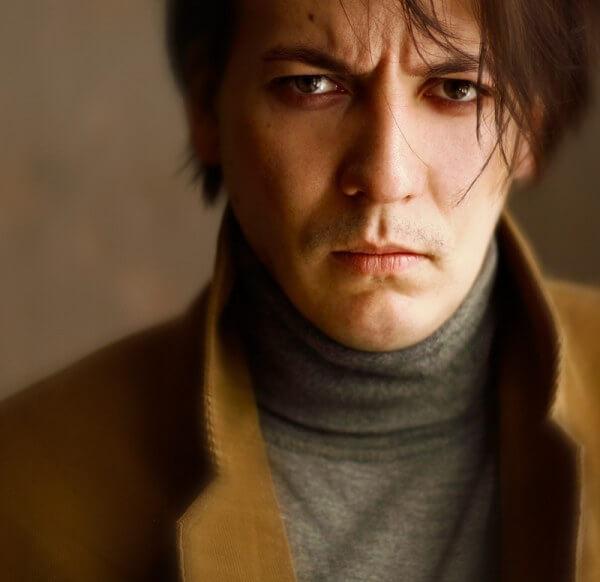
But, as You know, this is very rare. Traumatized parents are unable to grow and accurately reflect the child so that he became Mature and psychologically Autonomous.
They are able to give him only what we have ourselves: if their psychological age is 5 years and the child "can go".
For example, how can a dad or mom, who all his life used to suppress or "push" their own anxiety or helplessness, to reflect the child's, worry before a big test, processed and returned to him his feelings? Yes way. If they can say, "Yes, son, you are now worried, worried, because not sure I'd be able to successfully answer all the questions and get the ball which is calculated"? Can't. They simply will not be able to notice that their son is going through all this, as yourself do not notice. What mom or dad would say to a child? Of course: "Stop whining, come again repeat algebra!". Or "I told you I had time all the homework to do! Now — take that!"
And such examples of the responses of adults can cause a lot and You from my experience I can recall, I'm sure numerous amounts. And most interesting is that if You still remember your child's feeling after these words the parents, it is likely that they will be a deep sense of loneliness, resentment, guilt and shame.
But why do parents say? After all, they do not deliberately want to drive their own child to this complex unpleasant experiences. Don't want, of course. Just them in this moment is not to the child! They're with my anxiety I want to handle. After all, they themselves do not know how to discover it, not able to withstand, to endure, can not extract.
And the usual way to themselves not to worry — to get the child to hide from their own experiences to them: "not radioactive" and this stirred their own maloperanskaya and moosonee feelings.
And so can be in many-many cases when the child has to face the fact that no one in this world, even the closest and reputable people who can't handle his feelings, and to explain what is happening with him. So a "hole" in the way Ya Because there is for me now — "blind spot", where I have no access. I cannot and will not be able neither to experience nor understand.
With such "holes" in the image of I the customer and dealing with psychotherapists as well as in individual psychotherapy, when they meet with a detailed history of the development came to advice men or women. Subsequently, our work will be to "finish" in a sense, the work of the parents of the client, to hear and reflect squeezed out and moved away from the area of experience and awareness experience.
How can we "close up" holes in the way I
Holes in the way I psyche is trying to "fix" — because, one way or another, seek to restore its integrity. With holes "in the pants", even if these pants — in my head, have to live difficult.

This is something that works directly Gestalt therapy.
1. With the merger. The"hole" in the image of I is bleeding, it is important to temper that pain. In the merger with suffering, we are looking for someone who can this hurt a little bit to relieve. Usually, it is an object of future dependence. We begin, for example, to overeat or to smoke as soon as aware of our "blind spot". Or "merge" in the way I am with another person to make it to balance their emotional state.
In childhood, it could appear so. Example: the boy resorts to mom and crying, pushed him in the garden. The mother quickly gives him a delicious candy or a lot of tasty candies. Or buys something in the store, the toy. Of course she cope with their feelings about son and his situation. As a result, our future client who came to therapy may not streletsa with difficult experiences — he seizes them, drinks, suffer shopogolizm, or is in a codependent relationship. And, maybe, all along present in his life!
2. With enterectomy. It is a compound word, which in another way means "attitudes, stereotypes". For example, our situation: the boy resorts to mom and crying, pushed him in the garden. Mom, for example, is not sensitive to the resentment of the son, and cannot reflect it to him. Instead, she gives him interact: don't cry, you're a boy! (that is, "boys to weep"). The child in the soul of such a chain: mother cannot help the sense-formed "hole" in the image of the I — hole should close up the installation "don't cry". If such educational reception mom repeated, the child develops the skill (which then becomes unconscious) what if I want to cry, the tears and the feelings they cause, can neither survive nor the show.
Then therapy clients come, which, for example, suffer a lifetime of resentment and not allow myself to feel (and at the same time to make the right decision to stop suffering and try something else).
3. With retroflexion. The word means "turning on." Our situation: the boy resorts to mom and crying, pushed him in the garden. Mom, for example, generally pays no attention to his condition — as if those tears and no (or react as in the case of enterectomy). At repeated repetition of such a reaction, the boy stopped crying, and begins to fall ill, for example if it hurt. Or to complain about something that hurts. Then mom turns on and starts to notice, to care, to heal.
A client in therapy is suffering from psychosomatic diseases. His body reacts to repressed emotions. He had a headache and may even result in migraines, colitis the heart, pinching the back. He often catches cold. Directly at session — the blushes, Blanches, freezes, stops breathing, etc.
4. With deflexa. Redirecting the energy of contact with the demand in a different direction. Our situation: the boy resorts to mom and crying, pushed him in the garden. Mom: "Oh, look, what an interesting cartoon show! Your favorite! And dad and me yesterday, you bought a plane!". In the boy's mind changes. He stops crying and goes to watch a movie, interested in the plane and "forgets" that he was pushed. But the body never forgets.
In therapy, these clients can't keep on one topic — as soon as they are uncomfortable, they jump to the next "zabaltyvanie" or some story so as not to endure the pain and do not "unpack" underlying demand (this skill is not formed).

Also interesting: the Secrets of Gestalt therapists — how to improve your communication with people
Barbara Myerhoff: How we virusevent soul
I only described some of the mechanisms by which the psyche tries to restore its integrity, using the mechanisms of interruption of contact with the demand. A simplified description is sufficient for understanding these mechanisms may overlap to work all at once and in one place or separately in different ways.
You probably already knew:to stop the transmission of traumatic experience from generation to generation, it is necessary first of all to deal with the recognition and revision of their own "blind spots" or unfinished parts of identity. Then you wouldn't have to injure children, and their children.
In this sense, psychotherapy is the way to finish, to finally be heard and reflected by the therapist in those places where this experience is not enough. And then the picture of the image I will become more harmonious and whole.published
Author: Elena Mitina
P. S. And remember, just changing your mind — together we change the world! ©
Source: elenamitina.com.ua/publications/neuslyshannye-deti.html
For example, once in the genus, all men died in the war, and women were "strong". Or property, all their possessions taken away, and the feeling of "inappropriateness" in this world the background is constantly pursued and passed down from generation to generation.
Now and grandson bought a second apartment, the son built a house, brother has designed the ownership of land. And the feeling that "all pick" or "this is still a little" somewhere there. It may be quite unconscious and is experienced only as subrepository discomfort or anxiety, from which it is difficult to sleep. Or that all the time accompanied by one and the same dream.

To get rid of worries and feelings
But we used to escape from feelings of feelings. The thoughts, decisions, actions, conversations. Once it was saved by our ancestors. Didn't have time to worry, didn't have time to use your sensual experience good. It was necessary to issue "on the mountain" something rational to calm yourself and to others.
And issued. And experiences — stuffed inside, like old clothes in the far corner of the closet or was thrown away as rubbish — in pantry.
And maybe now we have time to "unpack" the baggage of experiences. After all, he can't be eradicated, it is with a heavy methodicalness makes itself felt from the inside. But the mechanisms are not. And skill no. All the things we were taught was quite the opposite: to suppress feelings.
"Traumatic" upbringing
In many cases a person's psyche injure is not what we at first sight think. For example, we want to protect the child from any adult conflicts or difficult events — when someone dies. We think that's what hurts him the most.
But often the incredible damage we are doing to the children (or us parents inflicted) on ordinary days when nothing happens and everything seems to be "cool." When we are unable to hear the experiences of the child and reflect them.
In such conventional "everyday days" when we just deaf (and to yourself) to those who asks us this attention, we put a strong injury.
And if we do this, it means only one thing: with us, at the time, did the same.

The most important thing for a person — his whole image of self.
What we feel inside, about yourself know and think we allow ourselves, as a treat, and is the common experience of "happiness" or "unhappiness" of life. Even not so important how much or how little money we have, we live in the family or yourself, what job we have, how many friends or connections. This is not so important. After all, if image I is not formed or only partially formed, we will suffer from this every day and every minute. And no external events will not be able to close up the holes in it — that is, the holes in our own soul.
What is the way I
This whole "database", which answers the question "who am I?". Millions of meanings, concepts, statements, laws. A whole library. We accumulate in childhood and dordives in adulthood.
The idea is that by adulthood, the way I should be fully formed in order to be able psychologically to live independently and not need parent who will take care of him.

But, as You know, this is very rare. Traumatized parents are unable to grow and accurately reflect the child so that he became Mature and psychologically Autonomous.
They are able to give him only what we have ourselves: if their psychological age is 5 years and the child "can go".
For example, how can a dad or mom, who all his life used to suppress or "push" their own anxiety or helplessness, to reflect the child's, worry before a big test, processed and returned to him his feelings? Yes way. If they can say, "Yes, son, you are now worried, worried, because not sure I'd be able to successfully answer all the questions and get the ball which is calculated"? Can't. They simply will not be able to notice that their son is going through all this, as yourself do not notice. What mom or dad would say to a child? Of course: "Stop whining, come again repeat algebra!". Or "I told you I had time all the homework to do! Now — take that!"
And such examples of the responses of adults can cause a lot and You from my experience I can recall, I'm sure numerous amounts. And most interesting is that if You still remember your child's feeling after these words the parents, it is likely that they will be a deep sense of loneliness, resentment, guilt and shame.
But why do parents say? After all, they do not deliberately want to drive their own child to this complex unpleasant experiences. Don't want, of course. Just them in this moment is not to the child! They're with my anxiety I want to handle. After all, they themselves do not know how to discover it, not able to withstand, to endure, can not extract.
And the usual way to themselves not to worry — to get the child to hide from their own experiences to them: "not radioactive" and this stirred their own maloperanskaya and moosonee feelings.
And so can be in many-many cases when the child has to face the fact that no one in this world, even the closest and reputable people who can't handle his feelings, and to explain what is happening with him. So a "hole" in the way Ya Because there is for me now — "blind spot", where I have no access. I cannot and will not be able neither to experience nor understand.
With such "holes" in the image of I the customer and dealing with psychotherapists as well as in individual psychotherapy, when they meet with a detailed history of the development came to advice men or women. Subsequently, our work will be to "finish" in a sense, the work of the parents of the client, to hear and reflect squeezed out and moved away from the area of experience and awareness experience.
How can we "close up" holes in the way I
Holes in the way I psyche is trying to "fix" — because, one way or another, seek to restore its integrity. With holes "in the pants", even if these pants — in my head, have to live difficult.

This is something that works directly Gestalt therapy.
1. With the merger. The"hole" in the image of I is bleeding, it is important to temper that pain. In the merger with suffering, we are looking for someone who can this hurt a little bit to relieve. Usually, it is an object of future dependence. We begin, for example, to overeat or to smoke as soon as aware of our "blind spot". Or "merge" in the way I am with another person to make it to balance their emotional state.
In childhood, it could appear so. Example: the boy resorts to mom and crying, pushed him in the garden. The mother quickly gives him a delicious candy or a lot of tasty candies. Or buys something in the store, the toy. Of course she cope with their feelings about son and his situation. As a result, our future client who came to therapy may not streletsa with difficult experiences — he seizes them, drinks, suffer shopogolizm, or is in a codependent relationship. And, maybe, all along present in his life!
2. With enterectomy. It is a compound word, which in another way means "attitudes, stereotypes". For example, our situation: the boy resorts to mom and crying, pushed him in the garden. Mom, for example, is not sensitive to the resentment of the son, and cannot reflect it to him. Instead, she gives him interact: don't cry, you're a boy! (that is, "boys to weep"). The child in the soul of such a chain: mother cannot help the sense-formed "hole" in the image of the I — hole should close up the installation "don't cry". If such educational reception mom repeated, the child develops the skill (which then becomes unconscious) what if I want to cry, the tears and the feelings they cause, can neither survive nor the show.
Then therapy clients come, which, for example, suffer a lifetime of resentment and not allow myself to feel (and at the same time to make the right decision to stop suffering and try something else).
3. With retroflexion. The word means "turning on." Our situation: the boy resorts to mom and crying, pushed him in the garden. Mom, for example, generally pays no attention to his condition — as if those tears and no (or react as in the case of enterectomy). At repeated repetition of such a reaction, the boy stopped crying, and begins to fall ill, for example if it hurt. Or to complain about something that hurts. Then mom turns on and starts to notice, to care, to heal.
A client in therapy is suffering from psychosomatic diseases. His body reacts to repressed emotions. He had a headache and may even result in migraines, colitis the heart, pinching the back. He often catches cold. Directly at session — the blushes, Blanches, freezes, stops breathing, etc.
4. With deflexa. Redirecting the energy of contact with the demand in a different direction. Our situation: the boy resorts to mom and crying, pushed him in the garden. Mom: "Oh, look, what an interesting cartoon show! Your favorite! And dad and me yesterday, you bought a plane!". In the boy's mind changes. He stops crying and goes to watch a movie, interested in the plane and "forgets" that he was pushed. But the body never forgets.
In therapy, these clients can't keep on one topic — as soon as they are uncomfortable, they jump to the next "zabaltyvanie" or some story so as not to endure the pain and do not "unpack" underlying demand (this skill is not formed).

Also interesting: the Secrets of Gestalt therapists — how to improve your communication with people
Barbara Myerhoff: How we virusevent soul
I only described some of the mechanisms by which the psyche tries to restore its integrity, using the mechanisms of interruption of contact with the demand. A simplified description is sufficient for understanding these mechanisms may overlap to work all at once and in one place or separately in different ways.
You probably already knew:to stop the transmission of traumatic experience from generation to generation, it is necessary first of all to deal with the recognition and revision of their own "blind spots" or unfinished parts of identity. Then you wouldn't have to injure children, and their children.
In this sense, psychotherapy is the way to finish, to finally be heard and reflected by the therapist in those places where this experience is not enough. And then the picture of the image I will become more harmonious and whole.published
Author: Elena Mitina
P. S. And remember, just changing your mind — together we change the world! ©
Source: elenamitina.com.ua/publications/neuslyshannye-deti.html
